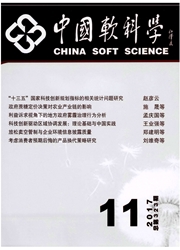

 中文摘要:
中文摘要:
致力于调查分析中国的环境敏感产业中企业的环境管控措施及其影响因素。立足于战略管理与管理会计两个领域有关的文献,发展相关理论假说。鉴于缺少公开数据,采用问卷调查的方式检验理论假说。通过对调查数据的检验分析,文中的主要理论假说得到了支持。研究结论表明,企业不同的环境保护战略蕴含着不同的逐利动机,导致在战略实施中形成了不同特征的环境管理控制;而企业要从环境保护战略的实施和环境管理控制的发展中最终获益,存在着关键的中介因素——政治关联。其中,政治关联的中介效应包括:在企业实施反应型环境保护战略、推进相应的环境管理控制时具有支持效应;在企业实施前瞻型环境保护战略,推进相应的环境管理控制时具有支持效应;在企业实施污染战略时具有替代效应。这一研究结论表明,融合战略管理与管理会计两个领域的研究,可以拓展企业环境保护的理论基础;调查、比较环境保护战略与环境管理控制,可以为观察企业环境保护责任的履行提供新的证据,避免被企业公开披露信息"误导"。
 英文摘要:
英文摘要:
This paper is aimed to investigate the determinants of eco-control practice in China's firms in environmentsensitive industry. The hypotheses of this study are developed from the theoretical implications of both strategic management and management accounting literature. Based on the research motivations and hypotheses, a series of survey are conducted to attain available data. Following the dataof valid questionnaire, the factor analysis and examination of 2SLS regression support most of hypotheses. The conclusions are drawn that the eco-control practice is influenced by environmental strategy with varied motives. And the political connections become an important moderation mechanism to influence the development of eco-control practice driven by different environmental strategies. The moderation effect of political connections includes the complementary effect and substitutive effect. Specifically, the political connections support the development of eco-control practice under the circumstances of execution of reactive and preemptive environment strategy. Otherwise, the eco-control practice to execute pollution strategy is substituted by political connections. This finding implicates that eco-control practice of firms has more factors to need exploration in the context of transition economy. Another implication of this study is that the comparison of environmentstrategy and eco-eontrol practice is contributive to prevent from misguiding of voluntary disclosure of environment protection from China's firms.
 同期刊论文项目
同期刊论文项目
 同项目期刊论文
同项目期刊论文
 期刊信息
期刊信息
